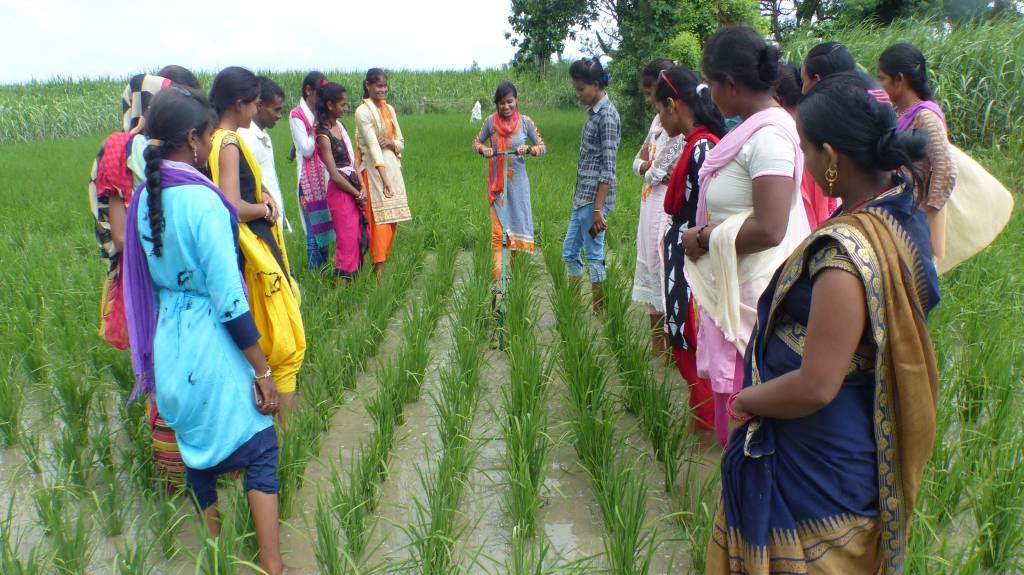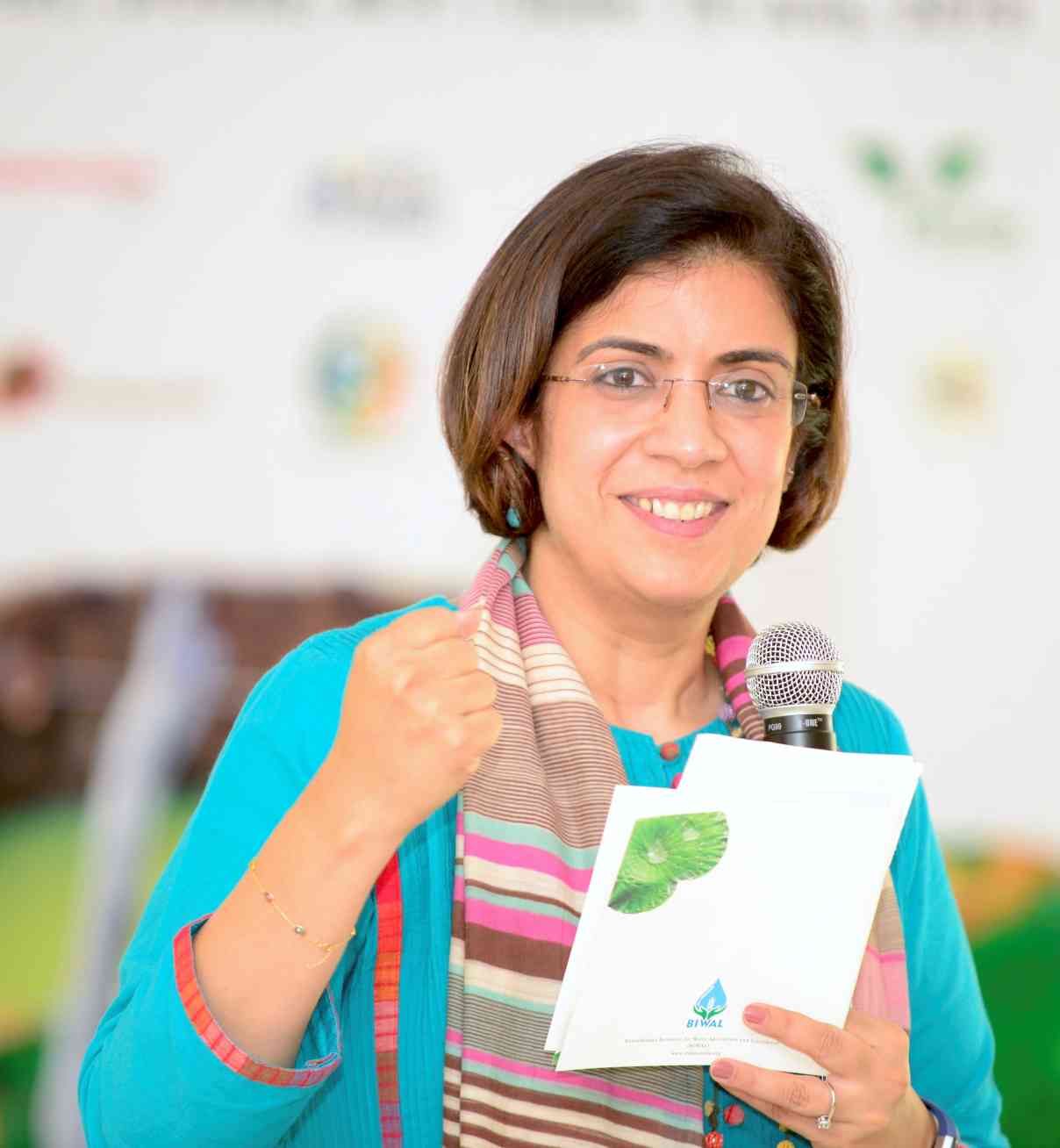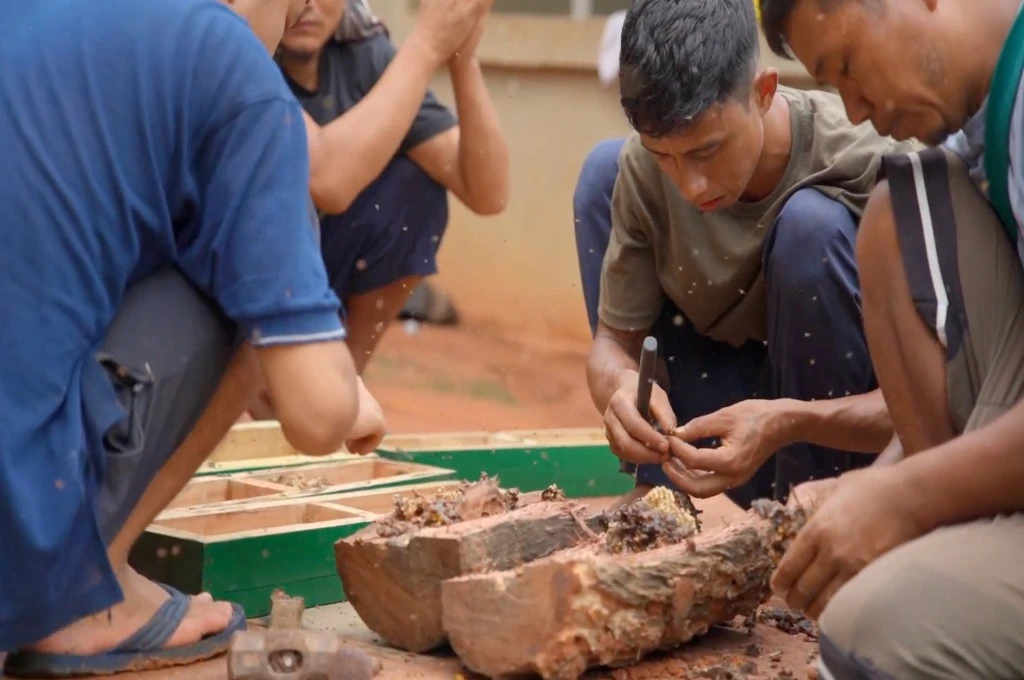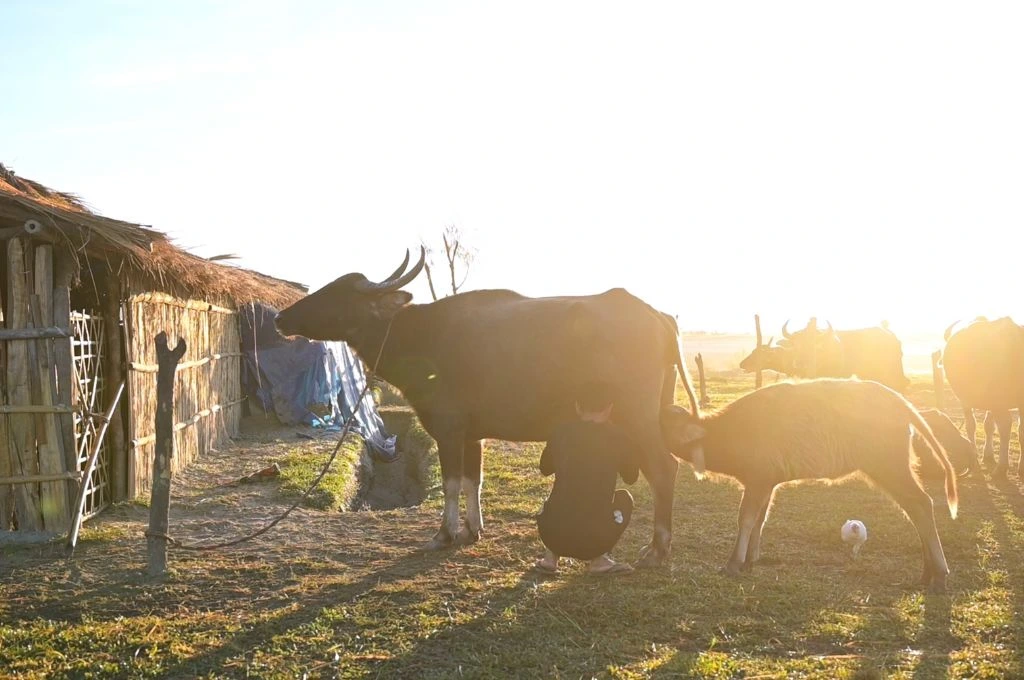One silver lining to a brutal 2020 was that it brought long overdue recognition to India’s frontline workers. Throughout the pandemic, we witnessed ASHA workers reaching out to make families aware of safety measures and village-based professionals conducting surveys to identify the needs of the most vulnerable. Gram Rozgaar Sahayaks helped returning migrants get job cards to work under NREGA. India’s frontline workers, particularly in rural areas, were finally visible and valued as they responded with timely solutions, often despite limited protection.
The pandemic also highlighted the need to involve local professionals in development work. We no longer need only rely on urban-educated workers to promote rural development. Rural youth are well-placed to fill these roles. This opens up an entirely new employability paradigm for rural India.
India needs rural jobs that address rural needs
With urbanisation preoccupying our national ambitions, we risk losing sight of the fact that the rural economy also needs to create and support local jobs. Rural India cannot thrive on trickle-down handouts. It is evident that with improved access to education in rural India, many young women and men have taken up roles as frontline workers within their communities.

The water and agriculture sectors would benefit from stronger involvement of frontline cadres.
The irony is that many of these frontline roles are perceived to be ‘informal’, transitory, and poorly valued, despite their potential to deliver impressive development outcomes. A case in point is the impact of ASHA workers on India’s healthcare indicators. Since 2005, when ASHAs were added to the healthcare frontline force, their efforts have contributed to a 59.9 percent decline in maternal mortality and a 49.2 percent decline in infant mortality. Under their aegis, immunisation rates for the country increased from 44 percent to 62 percent and institutional deliveries doubled—from 39 percent to 78 percent. This example underscores that there is scope to develop frontline cadres in other sectors as well. The water and agriculture sectors, in particular, would benefit significantly from stronger involvement of frontline cadres.

A new generation of a rural workforce, beyond healthcare
Agriculture forms the backbone of India’s rural economy. The Gross Value Added (GVA) by the agriculture, forestry, and fishing sectors was estimated to be INR 19.48 lakh crore in 2019-20. However, the job economy within agriculture is currently untapped.
A nationwide cadre of water and agricultural officers could lead the transformation of agriculture in India. Across our work at Hindustan Unilever Foundation, we have involved rural youth with a high school or a graduate degree/diploma in our programmes. With some training, they have taken up roles that require distinct technical skills and expertise. They now work locally to modernise agriculture, conserve water, and catalyse good governance for common resources such as waterbodies and forests.
We do not see these jobs as ‘informal’ roles. With quality training and mentoring, these cadres have contributed to economic growth and ecological protection in a short period of time.1 Here are three types of roles that have been anchoring our projects at the village-level:
1. Rural Groundwater Officer (RGO)
Locally known as Bhujal Jaankaars, these officers are para-hydrogeologists equipped to map groundwater flows, identify aquifer characteristics, and measure water in waterbodies. RGOs typically prepare a water source inventory, monitor water use in agriculture, prepare water budgets, collect data on changing water levels in wells, and share it with farmers and panchayats for appropriate action. An RGO also assists a village or a panchayat to manage their water budget and recognise the link between crop choices and irrigation methods on their village’s improving or declining groundwater levels.

The impact delivered by RGOs could potentially help India achieve water security at scale. In 21 villages in Gujarat’s Mehsana and Sabarkantha districts, a team of RGOs were able to generate 15 billion litres of water savings per year. This quantum of water is sufficient to support the drinking water needs for the entire population of both districts—nearly 85 lakh residents—for an entire year.
2. Agriculture Development Officer (ADO)
Also known as Krishi Mitras or Community Resource Professionals, ADOs are field professionals trained in agronomy and progressive agricultural practices. They typically belong to farming families and are the ‘go-to’ advisors for farmers in their villages. An ADO provides advisory services to farmers on practices that can reduce input costs, reduce pest incidence, apply water judiciously, and improve yields. They market their services through village meetings, audio-video shows, and on-farm demonstrations. They also help farmers access appropriate inputs, equipment, and quality seeds from reliable sources.
In Uttar Pradesh, an all-women team of ADOs helped 75 percent of farmers in their villages adopt progressive farm practices. They act as local ‘crop doctors’ who diagnose issues and promote healthy crops. Each ADO supports nearly 200 farmers in her village. Farmer incomes increased by 21 percent because of reduced input costs and improved yields in a year. This added eight percent to the per capita GDP of their villages—a contribution that is unprecedented for any job role—urban or rural.
3. Gram Rozgaar Sahayak (GRS)
These professionals are employed with village gram panchayats to support implementation of NREGA works. They engage with both technical and non-technical NREGA staff to oversee works at the panchayat level. GRS’ play an important role in preparing the annual development plans for their panchayats: They prioritise development works for the village, prepare material and labour estimates, issue job cards, and supervise and monitor infrastructure works and release of wages. Much like a manager at an urban construction site, they plan, schedule, and supervise all NREGA activities within their gram panchayats.
In our programmes in Rajasthan and Karnataka, GRS’ helped generate more than INR 5.5 crore of additional wages in a year through water harvesting and soil conservation works. Each GRS generated an additional 1,902 person days of employment and INR 3.36 lakh in income in their gram panchayats. Over five years, this amounted to more than INR 33 crore of additional wages for their respective gram panchayats.
So much potential, such little formalisation
We’ve seen firsthand the impact frontline workers can create. Imagine what this could mean for India if these cadres were formalised and scaled.
Economic growth
In our eastern Uttar Pradesh programme, on average, ADOs contributed eight percent to their village GDP in 2018-19, while high performers (the top 10) delivered 16 percent local GDP growth. If each of India’s 6.5 lakh villages had a well-trained ADO, our rural growth story could be a trailblazer.
Ecological security
Through 2017-19, RGOs helped improve groundwater levels in 47 percent of 234 wells, across 27 villages in Gujarat. In Uttar Pradesh, ADOs in 46 villages reduced water use in key crops such as paddy (by 34 percent), wheat (by 25 percent), and sugarcane (by 15 percent). This amounted to water savings of 8.5 billion litres in a year.
Social equity
Seventy percent of frontline cadres in our programmes are women. As they start being recognised as change agents in their villages, they are gradually able to dismantle certain patriarchal barriers. A new generation of women is now ready to enter the workforce in their villages, and there is a strong case to make when it comes to empowering rural youth through employment.
Our experience has shown that if we build a workforce in rural India that can acquire appropriate skills to modernise agriculture and conserve water, it could have catalytic impact.
Yet these roles continue to remain informal. Rural youth can be valuable assets, and we should view them as such. A 21-year-old woman from eastern Uttar Pradesh, when asked why she chose to be an ADO, said, “Main apne gaon ki disha aur dasha badalna chahatee hoon.” (I do this work because I want to change the path and destiny of my village). Her motivation goes beyond taking up a job, and it’s time we unleashed the potential of millions of young people like her.
—
Footnotes:
- The impact data presented hereon draws on input figures from HUF’s programmes. This input data is independently validated by E&Y through an assurance process. To know more these programmes and their impact, reach out to the authors at hindustanunilever.foundation@unilever.com.
Know more
- Read about India’s frontline workers in the health sector and learn about their motivations.
- Learn about what rural youth across the world think about agriculture.






